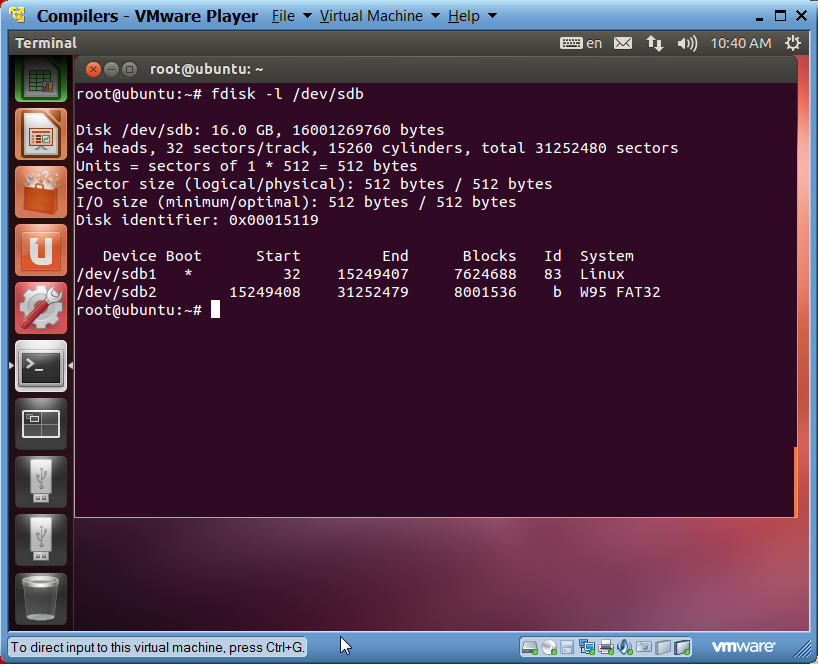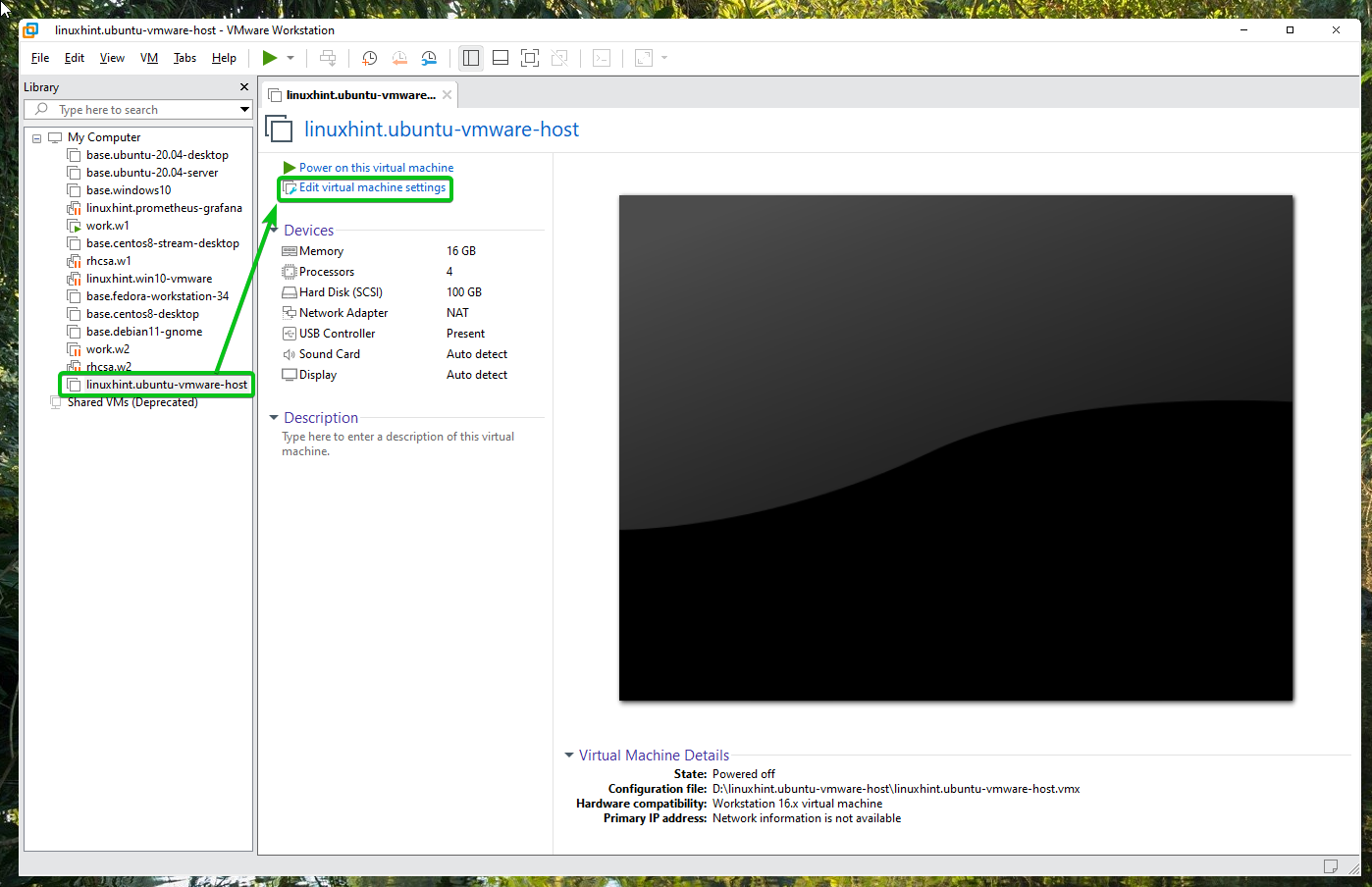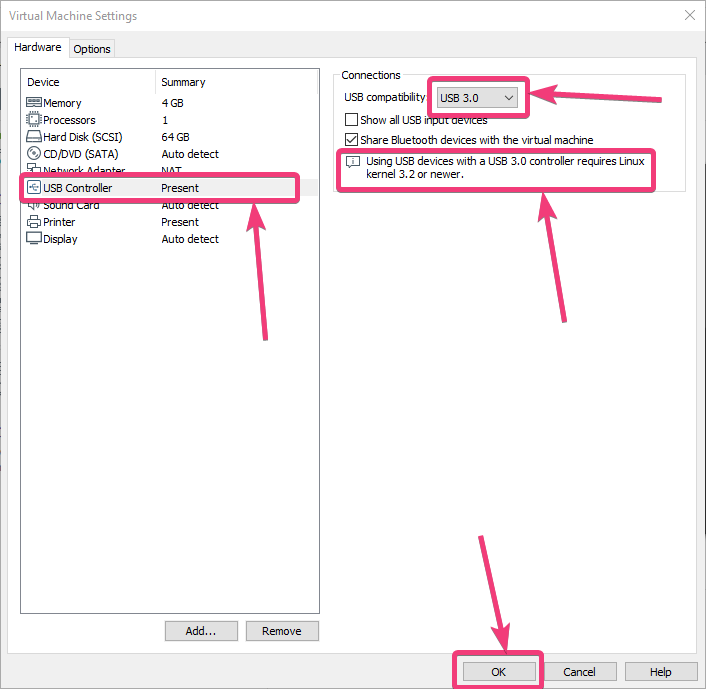

- Install linux on usb drive vmware install#
- Install linux on usb drive vmware update#
- Install linux on usb drive vmware iso#
- Install linux on usb drive vmware download#
So it is quite hard to copy VMDK files of virtual machines.

The main FAT32 problem is that it doesn’t support files over 4 GB.
Install linux on usb drive vmware update#
Easy installation option supports Windows 8.1 Update 1. To copy a file back from ESXi to USB, just swap the paths in the command. Resolved an issue that prevents a USB device from being connected to Linux RHEL 5 guest operating system. The second path shows where to copy the file on the ESXi host (for example, to VMFS datastore directly). Where /some.iso is a path to a file on your USB drive. Right now virtual machine is in powered off state. This will create Mint Linux virtual machine. If you are satisfied with configuration details, Click on Finish button. If you want to make any changes, you can still do that. You can view all the configuration settings.
Install linux on usb drive vmware install#
To copy a file from a FAT32 USB device to ESXi, use this command: Now VMWare Player is ready to install Mint Linux. Normally stored on a USB drive, these installations put the power of Kali Linux in your pocket, ready to launch whenever you need it.
Install linux on usb drive vmware iso#
Click the icon that looks like a CD to select the ESXi ISO image you’ve downloaded. Open Rufus and in the Device drop down select your USB flash drive. Connect your flash drive to your computer.
Install linux on usb drive vmware download#
Mount the ESXi Installation ISO and copy all the contents from the ISO to the USB flash drive.Disable the USB arbitrator service before connecting a USB drive to the ESXi host. Im not an expert on VMWare, but I know that this is common on almost any virtualization system. Download VMware ESXi ISO image from VMware. Flag the first partition on the volume as active and bootable.Start the command line partitoner fdisk in interactive mode (You will need administrative privileges for this). Don’t forget to use the disk# number obtained in step 2. Unmount the USB Drive, Note: This is not the same as Eject. diskutil eraseDisk MS-DOS "ESXI" MBR disk#

Now we need to format the drive with filesystem FAT32 and partition map MBR using the following command. Again, the location of Syslinux may differ according to the version of syslinux installed and the Linux distro used. We also need to copy mbr.bin, the file containing the boot code, to the USB drive. You should now see another disk show up, in my case disk3. To make the USB drive bootable, the syslinux utility is used. Insert the USB Flash then run the diskutil list command again. Open Terminal and list the mounted disks using the diskutil list command.



 0 kommentar(er)
0 kommentar(er)
